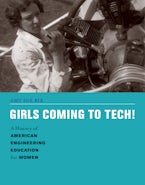In Effective Philanthropy, Mary Ellen Capek and Molly Mead offer strategies for strengthening organizations through a commitment to diversity and gender equality. Capek and Mead's research shows that institutionalizing a more nuanced understanding of what they call "deep diversity" allows organizations to make full use of all the resources they have available, both inside and outside their doors. The authors show how foundations have used "differences that divide us"—race, class, gender, sexual orientation, geography, age, religion, physical ability, and others—to become learning organizations, a proven strategy for organizational effectiveness.
By virtue of their "power of the purse" and more subtle forms of influence, foundations are key players in US social, economic, and public policy and are increasingly influential internationally. When foundations function effectively, there is potential for tremendous public benefit, and Capek and Mead argue that goals for equity in philanthropy are similar to goals for any effective organization. Offering demographics, case studies, strategic funding initiatives, theoretical analyses, and original research, Effective Philanthropy describes models for building effective foundations that can be applied to all kinds of institutions—large and small, public and private, national and regional, bureaucratic and entrepreneurial—including colleges and universities, nonprofits, government agencies, and multinational corporations.The diverse case studies and funding initiatives highlighted in the book include California Wellness, the Otto Bremer Foundation, the Philadelphia Foundation, the Ms. Foundation for Women's Collaborative Fund for Women's Economic Development, and programs for women and girls funded by the United Way of Massachusetts Bay.
Supported by the W. K. Kellogg Foundation and Women & Philanthropy.












